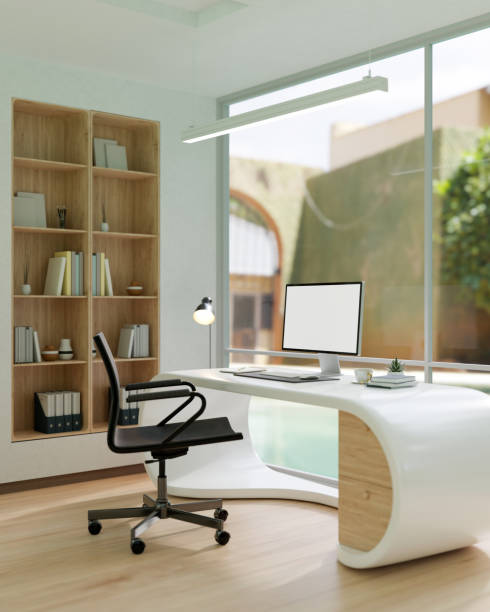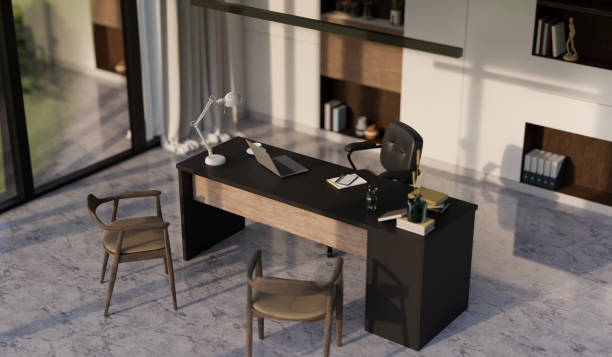

Leasing a private office space can offer numerous benefits for individuals and businesses alike. One of the main advantages is the sense of privacy and exclusivity that comes with having your own dedicated workspace. This allows you to focus on your work without distractions, and create a professional environment that reflects your brand and values.
Another benefit of leasing a private office space is the flexibility it provides. Unlike traditional office leases which require long-term commitments, many private office spaces offer flexible lease terms that can be tailored to suit your specific needs. This means you can scale up or down as your business grows or changes, without being locked into a lengthy contract.
Additionally, leasing a private office space often includes access to amenities such as high-speed internet, meeting rooms, kitchen facilities, and reception services. These amenities can help enhance productivity and efficiency in your workday, while also providing a comfortable and convenient environment for both you and your clients.
Furthermore, having a private office space can also boost your professional image and credibility. It shows clients, partners, and employees that you are serious about your business and have invested in creating a professional workspace. This can help attract top talent, impress clients, and ultimately contribute to the success of your business.
In conclusion, leasing a private office space offers numerous benefits including privacy, flexibility, access to amenities, and enhanced professionalism. Whether you are an individual looking for a quiet place to work or a growing business in need of dedicated office space, leasing a private office can provide the ideal solution for your workspace needs.
When looking for a private office lease, there are several important factors to consider in order to make the best decision for your business. One of the most crucial aspects to think about is the location of the office space. You want to ensure that it is easily accessible for both your employees and clients, and that it is situated in a convenient area with amenities such as restaurants, shops, and public transportation.
Another key factor to keep in mind is the size and layout of the office space. You want to make sure that it can comfortably accommodate your team and any equipment or furniture you may need. It’s also important to consider if there are options for customization or expansion in case your business grows in the future.
In addition, you should carefully review the terms of the lease agreement. This includes details such as the length of the lease, rent prices, included utilities, maintenance responsibilities, and any additional fees or charges. It’s essential to fully understand all these aspects before signing any contract to avoid any surprises later on.
Furthermore, you should also consider the overall atmosphere of the building and its surroundings. Is it a professional environment that aligns with your brand image? Are there shared amenities such as conference rooms or parking facilities? These factors can contribute to creating a positive work environment for you and your team.
Overall, choosing a private office lease is a significant decision that requires careful consideration of various factors. By taking into account aspects such as location, size, terms of agreement, and overall atmosphere, you can find an office space that meets your needs and helps support the growth of your business.

Have you ever felt like your business has the potential to soar to new heights, but you just can't seem to break through that glass ceiling?. Have you been searching for a way to elevate your company's image and attract top talent, but traditional office spaces just aren't cutting it?
It's time to unlock the potential of your business with a private office rental.
Posted by on 2024-04-17

Private office rental refers to the leasing of office space for exclusive use by a single individual or organization.. This type of arrangement offers a level of privacy and control that is not typically found in shared office spaces or co-working environments.
When renting a private office, tenants have the ability to customize the space to suit their specific needs and preferences.
Posted by on 2024-04-17

In today's fast-paced work environment, maximizing productivity is essential for success.. One way to increase productivity is by investing in a private office rental.
Posted by on 2024-04-17

When it comes to choosing a private office for rent, there are several factors that you should consider in order to make the best decision for your business.. The first factor to think about is location.
Posted by on 2024-04-17
When considering leasing a private office space, it is crucial to understand the terms and conditions outlined in the lease agreement. This document lays out the responsibilities of both parties involved - the landlord and the tenant - and serves as a legal contract that governs the use of the office space.
One of the most important aspects to consider when reviewing a private office lease agreement is the length of the lease term. Typically, leases for private offices are signed for a fixed period of time, such as one year or more. It is important to understand how long you will be committed to renting the space and whether there are any provisions for early termination.
Additionally, it is essential to carefully review the rental rate and any additional fees included in the lease agreement. Make sure you understand how much rent you will be paying each month, as well as any charges for utilities, maintenance, or other services provided by the landlord. Clarify who is responsible for repairs and renovations within the office space.
Another key aspect to consider is any restrictions or guidelines outlined in the lease agreement regarding modifications to the office space. Some landlords may have strict rules about painting walls, installing new fixtures, or making structural changes. Ensure that you are aware of these limitations before signing the lease.
Lastly, pay close attention to clauses related to security deposits, insurance requirements, and liability issues in case of damage or accidents on the premises. Understanding your rights and obligations as a tenant can help protect your interests and prevent disputes down the line.
In conclusion, understanding all aspects of a private office lease agreement is essential for a successful tenancy. Take your time to thoroughly review all terms and conditions before signing on the dotted line. If needed, seek legal advice or clarification from your landlord to ensure that you are fully informed about your rights and responsibilities as a tenant in a private office space.
When considering leasing a private office space, there are various costs that need to be taken into account. These costs can vary depending on the location, size, and amenities of the office space.
One of the main costs associated with leasing a private office is the monthly rent. The rent for a private office space can vary greatly depending on factors such as location, size, and demand. It is important to carefully consider your budget and financial capabilities before committing to a lease agreement.
In addition to rent, there are often additional costs associated with leasing a private office space. These can include utilities, maintenance fees, property taxes, insurance, and any other expenses outlined in the lease agreement. It is important to carefully review all terms and conditions of the lease agreement to understand what additional costs you may be responsible for.
Another cost to consider when leasing a private office space is any necessary renovations or improvements that may be required to make the space suitable for your business needs. This could include things like painting, flooring upgrades, or installing new fixtures or equipment. These costs can add up quickly so it is important to factor them into your overall budget.
Overall, leasing a private office space can be a significant financial commitment. It is important to carefully consider all costs associated with the lease before making a decision. By thoroughly researching and understanding all expenses involved, you can make an informed choice that aligns with your budget and business goals.
When negotiating a private office lease deal, there are several tips that can help you secure a favorable agreement. First and foremost, it is important to do your research and understand the current market conditions for office space in your desired location. This will give you leverage during negotiations and ensure that you are getting a fair deal.
It is also crucial to clearly outline your needs and preferences before entering into negotiations. Consider factors such as the size of the office space, amenities included, lease term, and any special requirements you may have. By being clear about what you need, you can avoid agreeing to terms that do not meet your expectations.
Another important tip is to be flexible during negotiations. While it is important to advocate for your interests, being open to compromise can help facilitate a smoother negotiation process. For example, if the landlord is unwilling to budge on rent price, consider negotiating for additional perks such as free parking or utilities.
Additionally, it is essential to review the lease agreement carefully before signing. Make sure all terms are clearly outlined and that there are no hidden fees or clauses that could potentially be detrimental to your business. If needed, seek legal advice to ensure that you fully understand the terms of the lease.
Ultimately, negotiating a private office lease deal requires preparation, communication, and flexibility. By following these tips and staying informed throughout the negotiation process, you can increase your chances of securing a favorable agreement that meets your needs and budget.
When signing a private office lease, there are several common pitfalls that can be easily avoided with some careful consideration and attention to detail. One of the most important things to watch out for is not thoroughly reading and understanding the terms of the lease agreement. It may seem tedious, but taking the time to review all clauses and provisions can save you from potential headaches down the road.
Another common pitfall is not considering all costs associated with the lease. In addition to the monthly rent, there may be additional fees for utilities, maintenance, or other services. Make sure you have a clear understanding of what you are responsible for paying so there are no surprises later on.
It is also important to carefully assess the length of the lease term. While it may be tempting to sign a long-term lease in order to secure a space, make sure it aligns with your business's needs and growth plans. Being locked into a lease that no longer suits your needs can be costly and restrictive.
Lastly, don't overlook the importance of location when choosing a private office space. Consider factors such as accessibility for clients and employees, proximity to amenities, and overall safety of the area.
By being diligent in your research and negotiations when signing a private office lease, you can avoid these common pitfalls and ensure that you find a space that meets your needs both now and in the future.